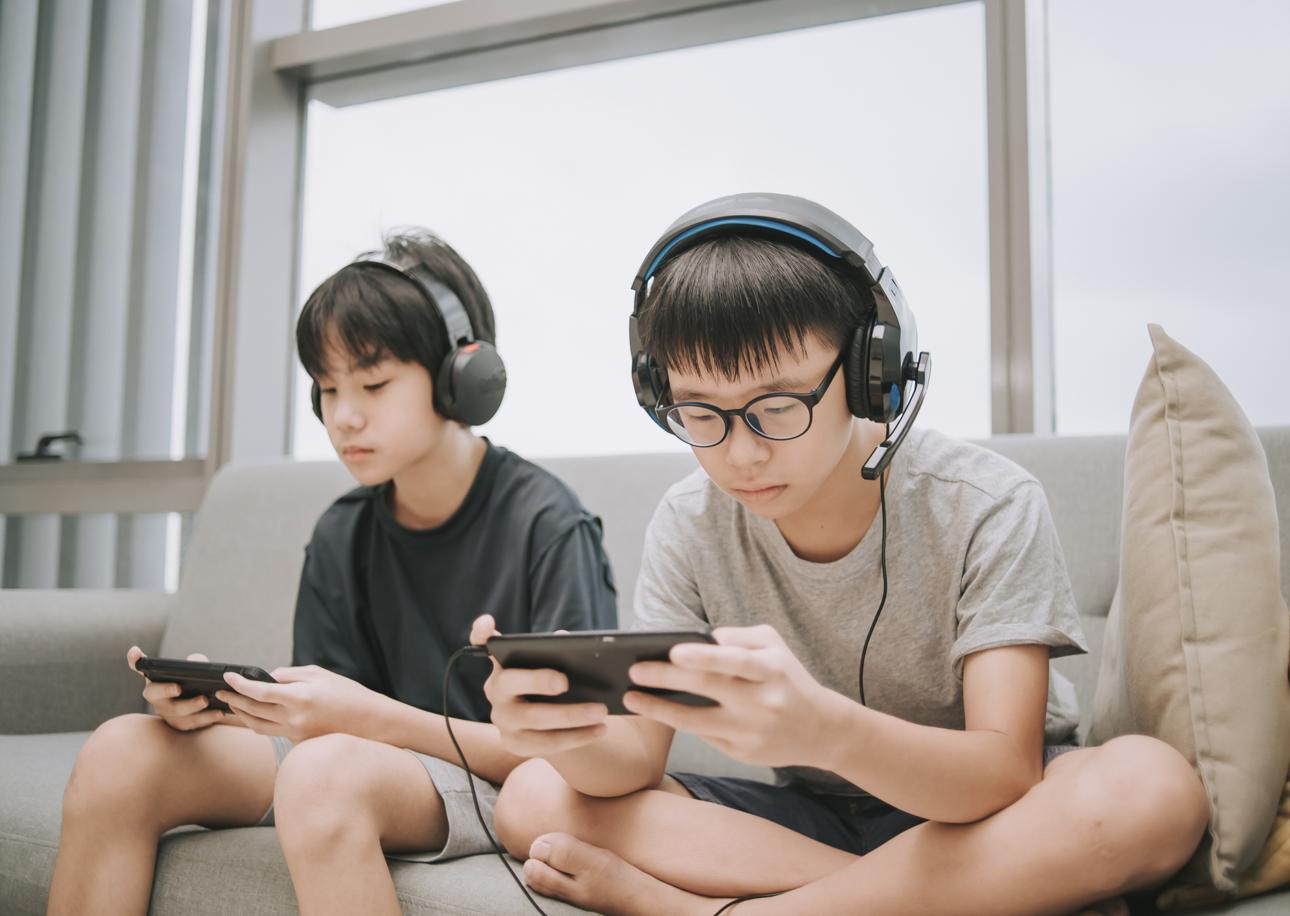Gentlemen’s Guide: Bangkok’s 5 Best Barber Shops
These top 5 barber shops in Bangkok are where gentlemen can elevate ...

Ever since the rise of mobile technology, children have become more glued to their devices indoors, rather than playing outdoors.
However, screen time among kids has surged to new levels during the COVID-19 pandemic. As a result, parents have become concerned about negative impacts on their children’s health including depression, anxiety, obesity, sleep problems, and more. Defining screen addiction can be difficult as there is no medical diagnostic, but there are some characteristics that are signs a child could be heading in that direction.
A new study has revealed the countries where the most tech-addicted kids live, by analyzing five different metrics. Each metric was awarded with a weighted score, and those scores were combined to find the places where children are most likely to be glued to the screens. The lower the final score, the more addicted to phones kids were found to be. Each country was also awarded a score of physical activity, with 1 indicating the most active behavior and 18 the most sedentary.
It turns out that children in the United Arab Emirates just can’t put down their devices. Ranking number one with a poor physical activity score of 17, reaching a high daily internet time of over 7 hours and an overall score of only 3.70, children in the UAE are clearly not reaching their daily recommended physical activity.
Coming in second is the United States. Despite the country having as many as 12,528 nature and wildlife spots, the nation’s obesity rate is on the rise. Fewer than half of the children in the US follow the suggested two hours or less of screen time per day, with a sedentary behavior mark of 11 and an overall score of 4.17.
Rounding off the top three with an overall score of 4.33 is Brazil, where child obesity rates are also rising. With an overall physical score of 11 and a sedentary behavior mark of 12, less than half of Brazilian children are following the recommended exercise or screen time guidelines.
As for the youth of Thailand, the country ranked number 9 with an overall score of 5.41. Kids spend up to 9 hours on their devices daily, with a sedentary behavior and physical activity score of 12, also not meeting the recommended guidelines.
While there have been studies that show that technology helps young children learn how to multitask more efficiently, digital device use is still a double-edged sword. We can’t consider device use in terms of being purely beneficial or purely dangerous, but based on how technology is being used. It’s crucial to continue to study the influence of the digital world on a child.
To read more on the research, visit lenstore.co.uk.
These top 5 barber shops in Bangkok are where gentlemen can elevate ...
Wandering around the globe, try out the signature tastes of cultures across ...
Pets, as cherished members of our families, deserve rights and protections that ...
Sailorr and Molly Santana’s black grills fuse hip-hop swagger with homage to ...
What happens when Bangkok’s dining scene expands beyond the familiar. Ethnic border ...
The dark elegance of Frankenstein’s costume design reveals itself. Gothic and romantic ...
Wee use cookies to deliver your best experience on our website. By using our website, you consent to our cookies in accordance with our cookies policy and privacy policy